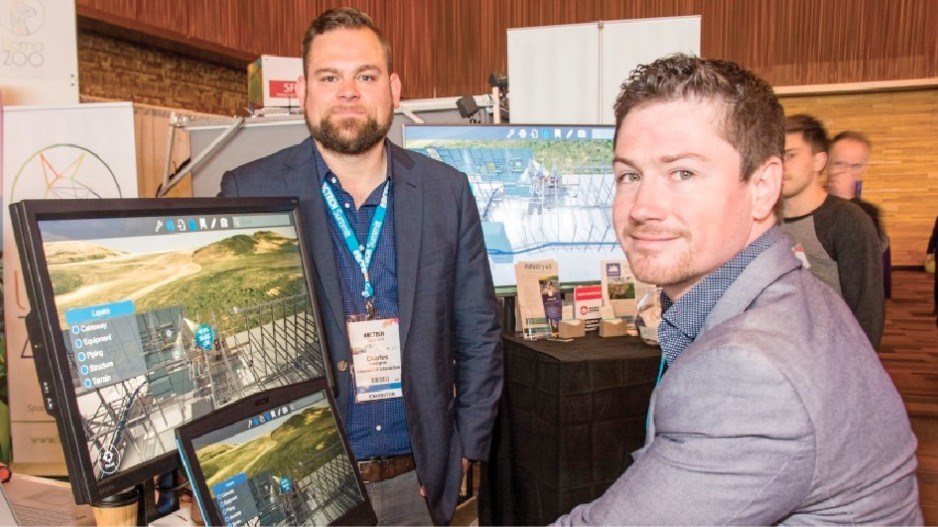A Victoria-based mining technology company is one of 15 startups selected for an international initiative designed to connect new technologies with enterprise companies in search of innovation.
Llamazoo Interactive Inc., which builds 3D simulations for industries such as mining, has started a 12-month program with Prospect Mining Studio, which is run by New York-based innovation hub Newlab.
It’s like a “smash space,” explains Llamazoo CEO and co-founder Charles Lavigne. Neither incubator nor accelerator, the program is intended to help tech companies build and scale their technologies. It also provides companies within the studio’s inaugural companies an opportunity to collaborate.
“Being in New York gives us access to a different level of capital and a customer base that we wouldn’t necessarily have access to being in Victoria,” said Lavigne, who plans to go to New York at least once a month, once COVID-19 travel restrictions ease up.
“This gives us maybe a little more credibility and some new business development avenues and channels, which we’re pretty excited by.”
Lavigne says around 75 companies applied for the Prospect Mining Studio. Over the next several months, Llamazoo will work toward deploying technology in a pilot with Vimson Group, an Indian conglomerate with assets in mining that has partnered with Newlab on the studio.
The initiative’s goal, according to Vimson Group director Vivek Salgaocar, is to build a network of partners that can collectively develop new insights into the field of mining.
“Vimson has always believed that we have to stay on the cutting edge of the industry,” Salgaocar said in a news release last fall about the launch of the studio. “With Newlab, we have found the perfect partner to bring new ideas and opportunities to one of the world’s oldest and most crucial industries.”
Selected startups hail from India, Switzerland, the Netherlands, Brazil, the U.S. and Canada. Calgary-based Carbon Upcycling Technologies, Toronto-based Novamera, Inc. and Sudbury-based Objectivity also made the project’s first group.
“We’re looking forward to applying these technologies in these uncertain times,” Lavigne said. “A lot of what we’re doing is enabling transparency around communication and complex data, and we need more of that.”




